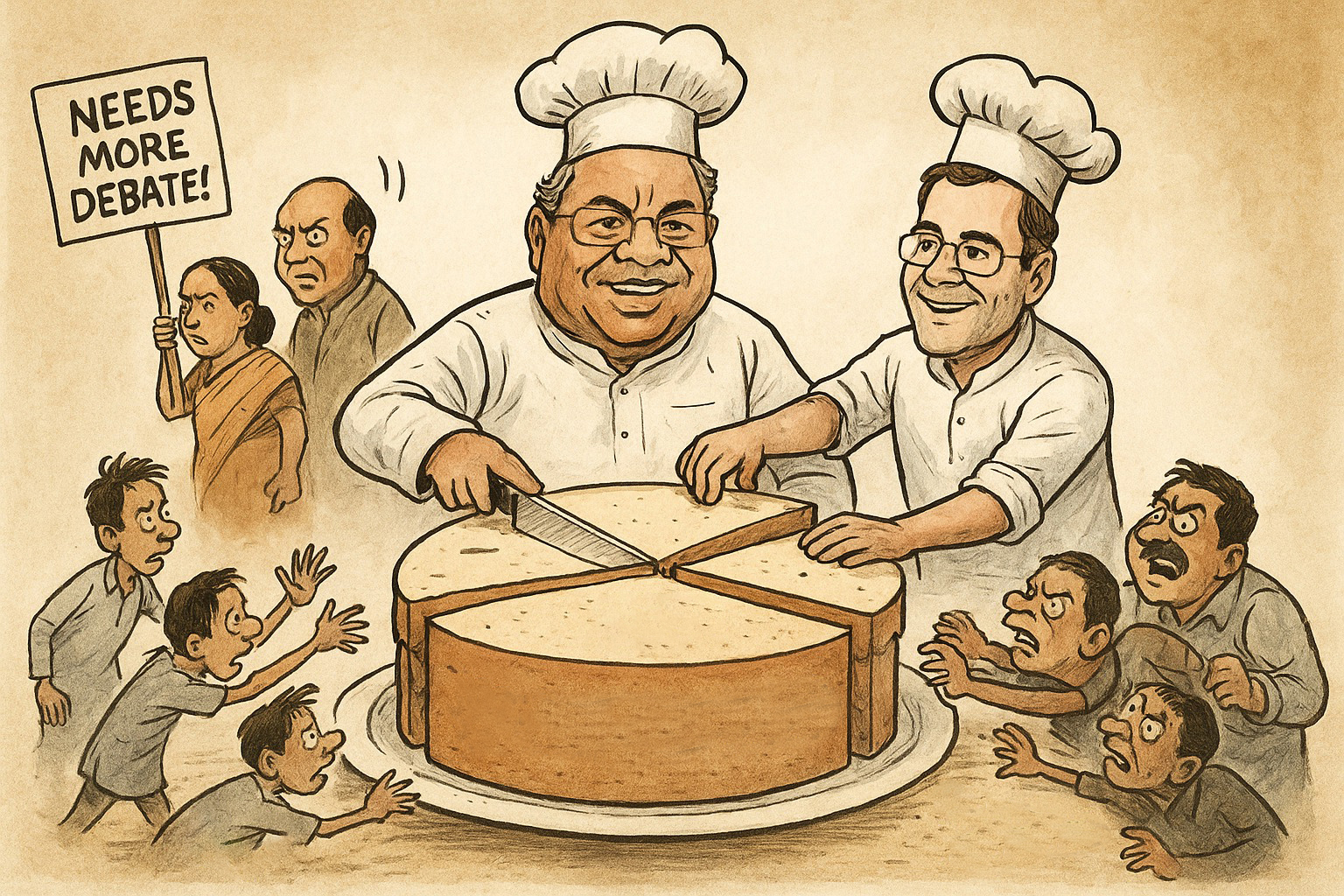- February 25, 2026
- Updated 12:56 pm
Reservation, rewritten
Strap: Karnataka splits 17% SC quota into three groups, reshaping Dalit politics and altering caste equations statewide.
Blurb:
For decades, Dalit politics has been influenced by the left-right division of the Dalit groups in Karnataka. Both groups have often shared hostility towards each other, and the Dalit Left category has actively hit the streets to get greater access & representation
Byline: Ashwin K
In a landmark decision, the Karnataka government has decided to sub-categorise the Scheduled Caste (SC) into three groups. The state currently has a 17% SC quota, and, according to the latest decision, it will be divided into three groups – SC Left communities (6%), SC Right (6%), and a combined third group (5%).
This significant decision will not only impact the Karnataka state politics but also the pan-Indian scenario where the Congress Party is actively looking to galvanise the votes of the Dalit to counter the BJP’s Hindutva politics. Before analysing the situation, we will first look into the decision and why the government has approved the decision.
The HN Commission and the report
In a bid to understand the situation of the various SC Caste groups, the government in November, 2024, formed the HN Nagmohan Das Commission, which studied nearly 101 Dalit groups and came up with multiple suggestions.
The government, although decided to approve the report, made some significant modifications to it. As per the latest decision, the government has announced a 6% reservation for the SC Left communities, which have been traditionally less represented in the public sphere, like government services and many others.
The SC Right, which has traditionally been considered an advanced community compared to the SC Left, has been granted another 6% of internal reservation. A combined group has been created where multiple caste groups will co-exist. Lastly, many sub-caste groups have been interchanged from one group to another. For instance, groups like Paraya and Mogera were earlier placed into the SC Left category; however, as per the latest decision, they have been shifted to the SC Right category.
The government decision, however, has not gone uncritical. The main opposition in the state, the Bharatiya Janata Party (BJP), staged a walkout protest against the latest decision. The party wanted to have a detailed analysis and discussions on the suggestions that the commission made.
What does it mean for Karnataka Dalit politics?
For decades, Dalit politics has been influenced by the left-right division of the Dalit groups in Karnataka. Both groups have often shared hostility towards each other, and the Dalit Left category has actively hit the streets to get greater access and representation in government jobs and political rights.
The Dalit Left has been perceived as the most marginalised category in the state, unlike the Dalit Right, which has found its place in jobs and political circles. For instance, the AICC chief Mallikarjun Kharge, who belongs to the Holeya community (SC-Right) rose through the ranks of the Congress party.
With the approval of the HN Das Commission, the Congress party puts a calculated gamble in the state’s political scenario. In the 2023 election, the party found its support among the Dalit Left, and with the decision of approving a 6%reservation for the SC Left, the support is expected to increase in the coming time. On the other hand, the Dalit Right, which actively supported the Congress through thick and thin, would also be satisfied with the 6% reservation. Overall, the approval of the reservation will enhance the social engineering politics that Congress is capitalising on.
Rahul Gandhi’s Dalit appeal
The Leader of Opposition (LoP), Rahul Gandhi, is presently in Bihar, as his padayatra (rally) is going on against the alleged theft of votes by the nexus of the BJP and the Election Commission. As issues like vote theft and SIR are doing the rounds in the Indian political circles, discussions are also being held that the people who have not found their names on the voter list belong to the Dalit-OBC groups.
In this context, the Karnataka government’s latest decision to approve the internal decision has a special role to play. As Rahul Gandhi is appealing for the Dalits to consolidate under the Congress banner, he can use Karnataka’s case as an example to uphold the situation of Dalits.

